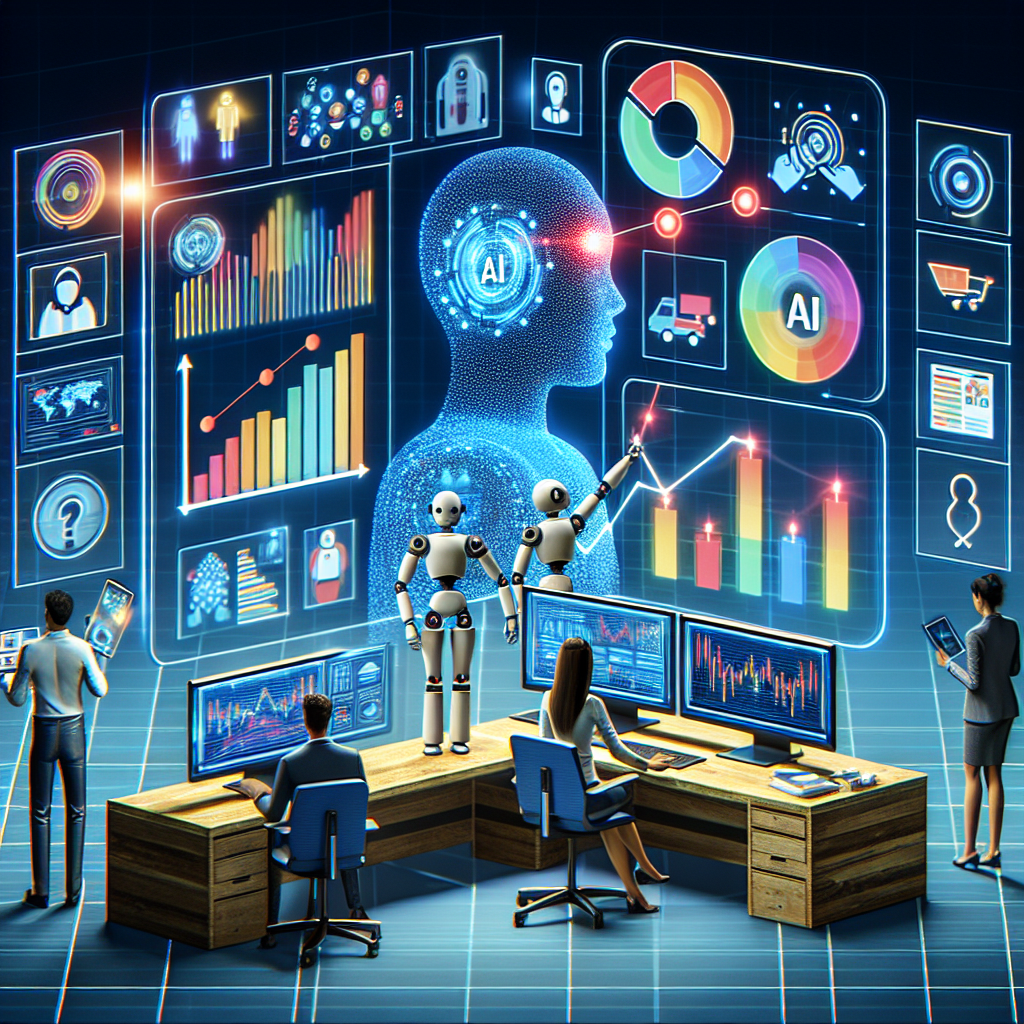Artificial intelligence (AI) has revolutionized the way businesses approach marketing by personalizing customer experiences. By leveraging AI technologies, marketers can now understand customer behavior, preferences, and needs on an individual level, allowing them to deliver relevant and tailored messages to each customer. This level of personalization not only enhances the customer experience but also drives better engagement, loyalty, and ultimately, sales.
AI deployment in marketing involves the use of machine learning algorithms, natural language processing, and other AI technologies to analyze vast amounts of data and identify patterns and trends that can be used to predict customer behavior. This allows marketers to segment their audience more effectively, create targeted campaigns, and deliver personalized content across various channels.
One of the key benefits of AI deployment in marketing is its ability to automate processes that were previously time-consuming and labor-intensive. For example, AI-powered chatbots can engage with customers in real-time, answer their questions, and provide personalized recommendations based on their browsing history and preferences. This not only improves the customer experience but also frees up marketers to focus on more strategic tasks.
Another advantage of AI deployment in marketing is its ability to continuously learn and adapt to changing customer preferences. By analyzing customer interactions and feedback, AI algorithms can refine their recommendations and predictions over time, ensuring that each customer receives personalized and relevant content.
AI deployment in marketing also enables marketers to optimize their campaigns in real-time. By analyzing customer responses to different messages and offers, AI algorithms can adjust campaign parameters such as timing, frequency, and content to maximize engagement and conversion rates. This level of agility and responsiveness is crucial in today’s fast-paced digital marketing environment.
In addition to personalizing customer experiences, AI deployment in marketing can also help businesses stay ahead of the competition. By analyzing market trends, competitor strategies, and customer feedback, AI technologies can provide valuable insights that can inform marketing strategies and drive innovation. This competitive advantage can be crucial in crowded marketplaces where differentiation is key.
However, despite the numerous benefits of AI deployment in marketing, there are some challenges and considerations that businesses need to be aware of. For example, ensuring data privacy and security is crucial when using AI technologies to collect and analyze customer data. Businesses need to comply with regulations such as the General Data Protection Regulation (GDPR) and implement robust security measures to protect customer information.
Another challenge of AI deployment in marketing is the need for skilled professionals who can understand and interpret the insights generated by AI algorithms. Marketers need to be trained in data analysis, machine learning, and AI technologies to leverage these tools effectively and drive meaningful results.
Additionally, businesses need to ensure that their AI algorithms are unbiased and ethical in their decision-making. AI technologies can inadvertently perpetuate existing biases in data sets, leading to discriminatory outcomes. Businesses need to implement safeguards and checks to prevent bias and ensure that their AI systems are fair and transparent.
Despite these challenges, the potential of AI deployment in marketing is immense. By personalizing customer experiences, optimizing campaigns, and staying ahead of the competition, businesses can drive better results and build stronger relationships with their customers. In the age of data-driven marketing, AI technologies are becoming essential tools for businesses looking to thrive in a digital-first world.
FAQs:
1. What are some examples of AI deployment in marketing?
– AI-powered chatbots that engage with customers in real-time
– Predictive analytics algorithms that segment customers based on behavior and preferences
– Personalization engines that deliver tailored content and recommendations to each customer
2. How can AI deployment in marketing benefit businesses?
– Improve customer experience by personalizing interactions and content
– Drive better engagement, loyalty, and sales
– Optimize marketing campaigns in real-time based on customer feedback and behavior
– Stay ahead of the competition by analyzing market trends and competitor strategies
3. What are some challenges of AI deployment in marketing?
– Ensuring data privacy and security
– Training marketers in data analysis and AI technologies
– Preventing bias and ensuring ethical decision-making by AI algorithms
4. How can businesses ensure that their AI algorithms are unbiased and ethical?
– Implementing safeguards and checks to prevent bias in data sets
– Ensuring transparency in AI decision-making
– Regularly auditing AI algorithms for bias and discrimination

